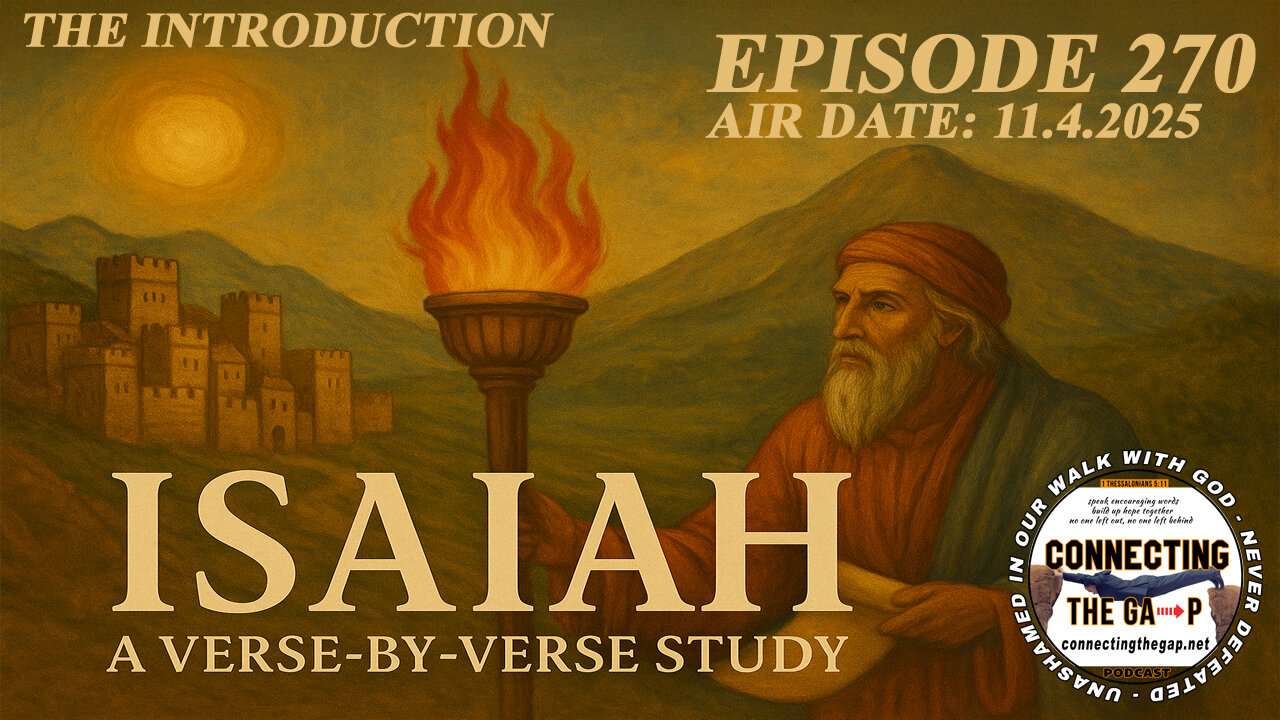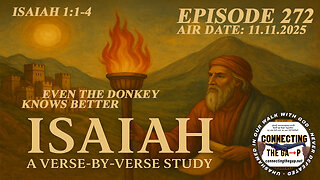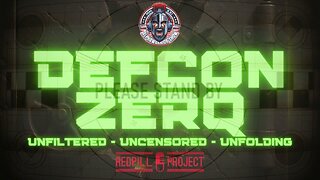Premium Only Content

Introduction to Isaiah - 270
Judgment doesn’t get the last word—holiness does. We’re kicking off a new verse-by-verse journey through Isaiah by setting the scene: a prophet with court access who spoke truth to power during invasions, sieges, and national panic. We map the turbulent history around Uzziah, Ahaz, Hezekiah, and Manasseh; the fall of Israel; the Assyrian threat to Judah; and the Babylonian exile that shaped the book’s tone. Along the way, we unpack why Isaiah’s voice is both razor sharp and deeply tender, exposing idols and injustice while announcing comfort and a coming king.
You’ll hear how Isaiah writes—with parallel lines that sing and indict, metaphors that refuse to fade, and narrative scenes that land the prophecy in real events. We compare Isaiah’s style with Jeremiah, Ezekiel, Hosea, Amos, Micah, Joel, and Zechariah to show the shared prophetic toolbox and Isaiah’s unique fluency. We also address the big question: single author or multiple hands? We lay out the three-part structure many propose, then make the case for unity using the Dead Sea Scrolls, literary coherence, and the theological arc that runs from judgment to consolation.
Most of all, we draw the line from ancient crises to modern hearts. Isaiah’s charges still sting: idols that look like self and status, leaders seduced by gifts, worship without justice, and wisdom that winks at evil. Yet the book keeps steering us back to hope—the Servant who suffers and heals, the nations drawn to light, and a God who names empires and keeps promises. If you’re hungry for Scripture that confronts and comforts in equal measure, this series aims to give clarity without losing wonder and application without losing awe.
Subscribe, share the show with a friend, and leave a quick review to help others find it. Got questions or insights as we study? Message us at connectingthegap.net or email [email protected]—and check out Marriage as a Mission on Amazon for practical tools to build a Christ-centered home.
-
 38:31
38:31
Marriage Life and More
21 hours agoIsaiah 1:1-4 - Even the Donkey Knows Better - 272
3 -
 7:40
7:40
Blabbering Collector
14 hours agoLEAKED: Draco Malfoy, Hooch, Neville Longbottom! | Harry Potter HBO Show Update, Wizarding News
18.2K2 -
 3:06:35
3:06:35
Badlands Media
17 hours agoDEFCON ZERQ Ep. 017: Tesla Tech, Ancient Power & The Fight for Human Consciousness
239K65 -
 3:11:56
3:11:56
TimcastIRL
10 hours agoDOJ Launches FULL INVESTIGATION Into TPUSA Antifa RIOT, Media Says Mostly Peaceful | Timcast IRL
268K106 -
 3:16:27
3:16:27
Barry Cunningham
13 hours agoBREAKING NEWS: SOLVING THE HOUSING CRISIS BY UNDERSTANDING VETERANS DAY! AND IT'S MOVIE NIGHT!
88K34 -
 8:58:17
8:58:17
SpartakusLIVE
11 hours agoWZ Solos to Start || NEW Battlefield 6 - REDSEC Update Later
30.2K1 -
 1:01:56
1:01:56
ThisIsDeLaCruz
20 hours ago $14.29 earnedInside Kenny Chesney’s Sphere Part 1: Exclusive Backstage Pass
43K2 -
 2:09:50
2:09:50
DLDAfterDark
9 hours ago $5.23 earnedA Complete Look Into The Glock "V Series"! Pistol In Hand! VERY GAY!!
26.1K2 -
 7:42
7:42
China Uncensored
16 hours agoIndia Has Surpassed China
51.1K22 -
 8:47
8:47
Hollywood Exposed
14 hours agoJoe Rogan and Zachary Levi DESTROY Gavin Newsom’s Lies About California
32.8K7